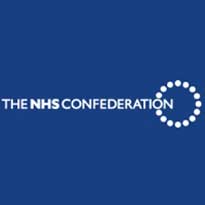North SHA flags reform risk to IT plans
- 16 February 2012
One of England’s cluster strategic health authorities has identified the government’s health reforms as posing a risk to its IT and information plans.
NHS North of England has ‘amber lighted’ its ability to manage IM&T programmes to agreed targets, on its corporate risk register.
The register says there is a danger that the transition to the reformed system will disrupt the delivery of IM&T as strategic capability is dissipated.”
To address this risk, it says that trusts have been asked to update the cluster SHA on their IT programmes in March and November, and that ‘locality leads’ have been assigned to cluster primary care trusts to assure their IM&T governance.
The risk registers for the four cluster SHAs have been published by the Guardian, which, along with other media organisations, is trying to force the Department of Health to publish its risk register for the reforms.
The major risks identified by the cluster SHAs include a reduced level of patient safety and an increased risk of overspending, as well as potential for conflict between new organisations.
In the north of England, risks are given a score made up from a mark for their probability and impact. ‘Significant’ risks are given a mark over 15 and ‘high’ risks a mark between eight and 12.
The cluster SHA gives ‘12’ marks to “organisational and system instability”, “corporate and individual capacity and capability [being] diminished by uncertainty”, “a loss of grip on current performance”, and “productivity gains being made at the expense of quality.”
IM&T is marked nine. The other risk registers do not list IM&T or information issues in the same way.
However, shadow health minister Andy Burnham said the other risks they identified meant the government should halt its Health and Social Care Bill.
This is meant to implement the ‘Liberating the NHS reforms’ outlined in 2008, but which has been stuck in Parliament for a year.
Unions, royal medical colleges and the major health journals have all come out against the Bill recently.
And a petition calling for the bill to be dropped has achieved the 100,000 signatures it needs for Parliament to have to consider a debate on the issue.
Despite this, Prime Minister David Cameron has backed his health secretary, Andrew Lansley, and said he is “at one” with him on the need for the legislation.



